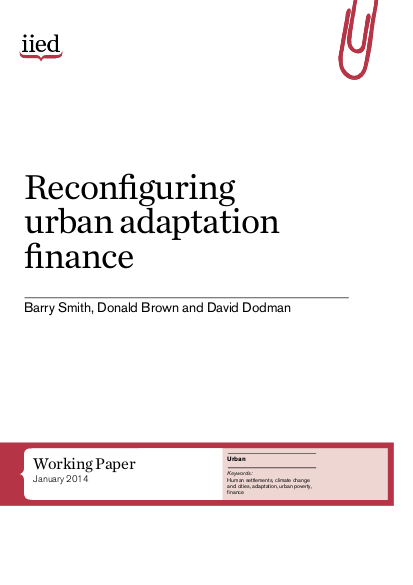
This paper examines international, national and municipal mechanisms for financing adaptation, and reveals the systemic barriers that prevent money being channelled into the hands of low-income and highly vulnerable urban residents in low- and middle-income countries, and hinder effective urban adaptation. At the same time, a number of highly organised, pro-poor, locally managed funds are being pioneered across a number of cities in low- and middle-income countries. Bottom-up planning and decision-making is emerging as a potential complement to the ineffective top-down financing models, and offers a viable approach to bridge the gap between low-income urban residents and the agencies that claim to support them.
Resource collections
- Leadership
- Prioritisation
- UN Habitat - Urban Response Collection
- Urban Response - Urban Crisis Preparedness and Risk Reduction
- Urban Response Collection - Community Engagement and Social Cohesion
- Urban Response Collection - Economic Recovery
- Urban Response Collection - Environment and Climate Change
- Urban Response Collection - Housing, Land and Property
- Urban Response Collection - Urban Crisis Response, Recovery and Reconstruction
- Urban Response Collection - Urban Resilience